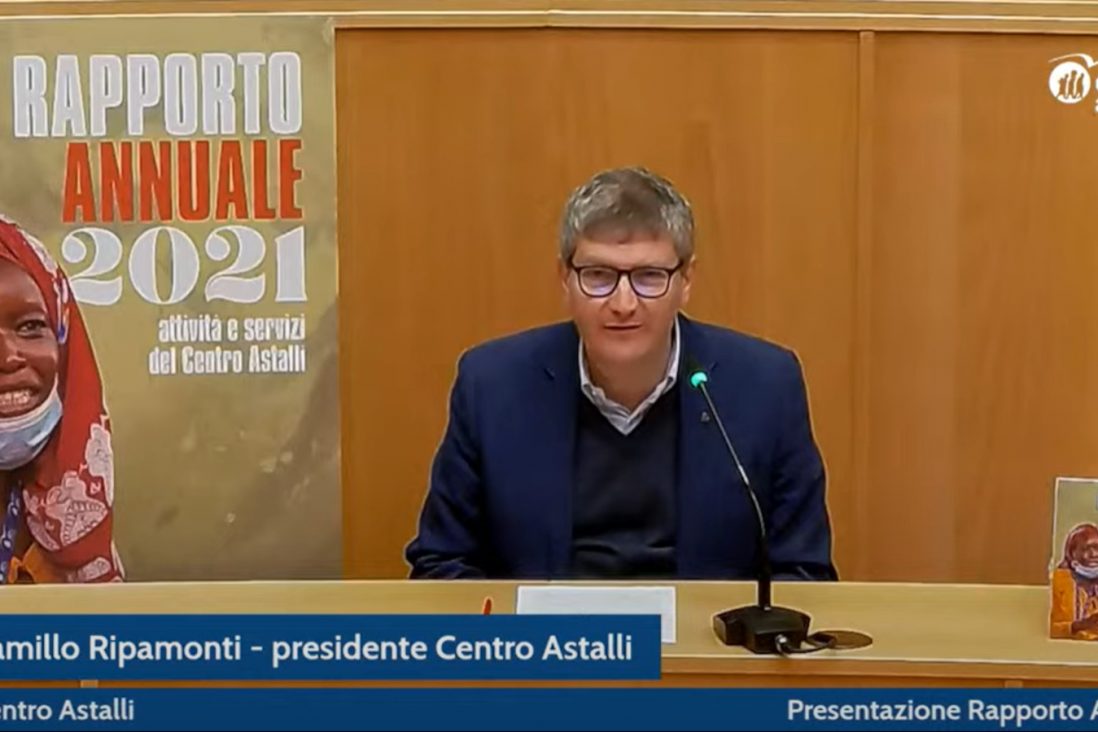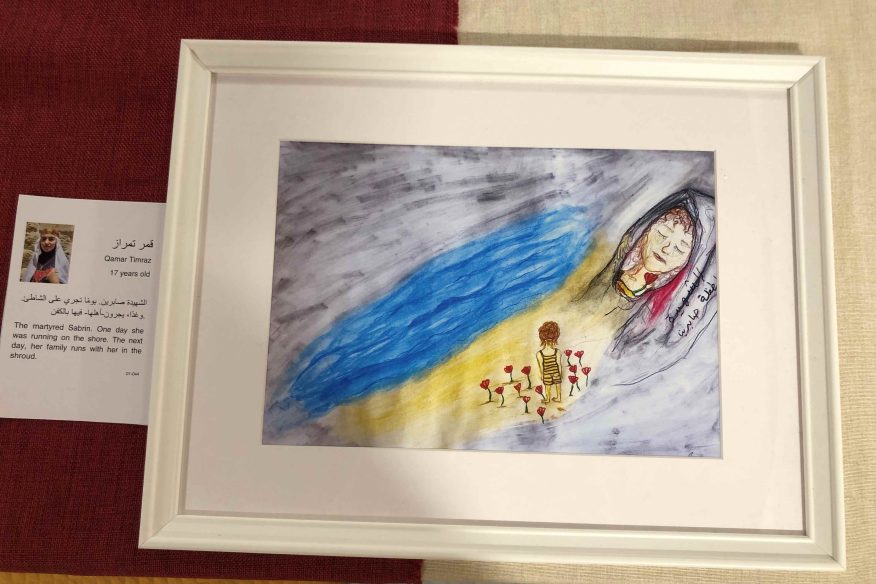“Eyes that look beyond the mask”: the Centro Astalli report 2021

17,000 people were being listened to. 882 were welcomed. “Services were improved but never suspended”.
The 2021 Annual Report was presented live online on Centro Astalli’s YouTube channel, with the testimony of Mpemba Umba, a Congolese refugee in Italy, who fled the war: “I am the mother of an eight-year-old girl. Before the pandemic I worked as a receptionist. I lost my job. The Centre helps me pay the bills, the rent and provides for my human needs. Through them I’m about to realise one of my dreams: to become a social and health worker. This is a guaranteed job for me and my daughter’s future and offers me the possibility to help others”.
“The pandemic has managed to expose the refugees’ reality,” Fr Camillo Ripamonti, President of the Centr, highlighted. “making them unique citizens of deserted cities”.
The report details about this reality as seen from the office in Rome and from the various territorial centres: Bologna, the new reality of the network, Catania, Grumo Nevano, Palermo, Trento, Vicenza and Padua. “17,000 refugees, who are trapped and victims of short-sighted, ideological and instrumental policies,” he added.
“This is a time of great challenges, where emigration is a top priority that the international community must tackle in unity and solidarity,” highlighted David Sassoli, President of the European Parliament, in his greeting message. “As Europeans we have a duty to enhance the idea of global citizenship and solidarity. We need rules that humanise global mechanisms. We must work on concrete and realistic policies”.
The report
A Global Observation
Venezuela, Syria, Afghanistan, South Sudan and Myanmar are the main countries of migration. In 2020, some 168 countries closed their borders and 90 countries denied access to refugees. Arrivals in Italy by sea were around 34,000: 13,000 people left from Libya, 11,000 were brought back and over 1,400 lost their lives during the crossing. For many, the pandemic is one of many evils, but not the worst. Surviving in detention centres, being brought back to an unsafe port, and dying at sea are much worse.
The Balkan route was also back on the news in 2020, highlighting Europe’s tendency to externalise borders and push back refugees from one state to another’.
This was witnessed by Fr Stanko Perica, a Croatian Jesuit, director of JRS Southeast Europe (Bosnia and Herzegovina, Croatia, Kosovo, Macedonia, Serbia). “We distribute food, water, clothes, charge their mobile phones, and solar panels. We have 18 cultural mediators, and medical volunteers. Many cannot take a shower or change clothes. From nursing their physical injuries to translating for them legal issues, we stay close to them as we want to show the hospitable face of Europe. Nothing unites human beings as much as hardships faced together.
Living together in Italy
More than 17,000 people were accompanied by Centro Astalli, of whom 10,000 were accompanied in Rome alone. “The pandemic has exposed what was hidden, showing the extremity of their condition”. Over 50,000 meals were distributed at the Centre’s canteen, and medical assistance was also provided. In March and April, the refugees were joined by homeless Italians and EU nationals. “The Centre’s door has never been closed. It was a constant point of reference. The same applies to all the territorial centres. The services have been improved but never suspended.
The admissions continued: 882, is the number of admissions in Italy.
Those who had embarked on a journey of integration had to interrupt it abruptly. A social network supported them. 178 single mothers were welcomed in Rome. This is 54% of the total number of those who make use of this service. The loss of a job, for those who had one, generated problems and difficulties.
A word of thanks and looking towards the future
Building a culture of encounter, is the dream of the Centre, which was born out of Fr Arrupe’s desire.
“In 2020, awareness-raising activities continued in schools, “windows” and “meetings”. This took place in15 cities, involving 15,000 students.
Thousands of refugees, together with volunteers and workers did not give up, but together they found a way to come out of this crisis much better than before.”.
“We thank the Lord for the 40 years of service given by Centro Astalli” Cardinal Tagle highlighted in his message. “This is a testimony of humanity, love in action and compassion. It is not a simple account of activities. Migrants are human bridges between countries of origin and destination. They are brothers, sisters, unique persons, but also, they mirror who we are. You have borne witness to the presence of God who walks together with his people.

